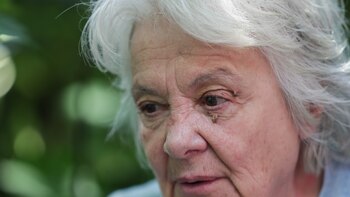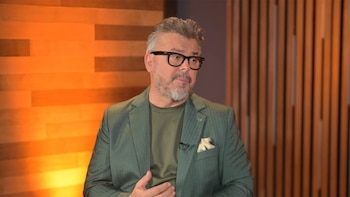
(ATR) Munich is pitching itself as the 'Friendly Games' in a bid that puts strong emphasis on tapping into Germany's "national passion for winter sport" and a drive to increase youth participation in sports on the Winter Olympic program.
"For the Olympic Movement this bid offers an extraordinary story of Olympic sustainability and innovation framed within a vision for the Friendly Games - friendly for the athletes, spectators, sport and the environment," says Thomas Bach, president of the German Olympic Sports Confederation, in the introductory comments.
Bach, also an IOC vice president, says the city has designed a plan that builds on its 1972 Summer Olympics legacy, "transforming Munich Olympic Park into a new international center of summer and winter sport for the decades ahead".
German chancellor Angela Merkel describes the Munich bid as a "national priority" and pledges the full support and promotion of the federal government.
At the heart of the Munich 2018 plan is the 'Two-Park' concept, which calls for the modification of some 1972 Olympic venues.
The Munich site includes five competition venues, the Olympic stadium, Olympic Village and a media village. This Ice Park has a capacity for 150,000 people. It currently hosts 340 events a year, which attract 2.3 million visitors annually. The Snow Park in Garmisch-Partenkirchen includes nine competition venues, an Olympic Village, media village and media center.
The sliding center at Koenigssee proposed for the Games is currently undergoing a $31.5 million renovation for the bobsleigh and skeleton world championships in 2011.
The 116-page Applicant File was submitted to the IOC ahead of the March 15 deadline, along with the files from 2018 rivals Annecy, France and Pyeongchang, Korea.
The Munich website is http://www.muenchen2018.org/
Munich Applicant File Highlights
Munich 2018 would take place from Feb. 9 to 25; the Winter Paralympics are set for March 9 to 18.
The Applicant File lists three "primary" motivations for the bid: "A brilliant celebration of winter sport", "A sport and culture experience for the young" and "Sustainability and innovation through the Friendly Games".
Public support for the Olympics is rated at 75.5 percent in one survey, 68 percent nationally. Another poll cited in the Applicant File shows that of people interested in sport, 82.2 percent support the bid.
While the National and Munich Green Parties support the bid, the Bavarian Greens Party has concerns, says the Applicant File. The bid "is engaged in active dialogue" with the opponents "and is working to gain their support" says the file.
The bid pledges to operate "on principles of transparency and public engagement".
"Funding commitments" have already been received for the bid from all thee levels of government.
Domestic marketing revenues are estimated at $1.074 billion. That figure includes $559 in German sponsorships, $229 million in ticket sales and $43 million in licensed products.
Ticket revenues are based on selling 80 percent of tickets.
Ticket prices are forecast to range from $46 to $419.
For experience, the Applicant File cites nearly two dozen major international sports events recentlyheld or scheduled for the next two years in the Olympic region.
A total of 15 venues will be used, eight existing, three new and four which are temporary.
In a venue construction budget of 320.6 million, the largest projects are the Ice Hockey Hall ($143 million), Ice Hockey 2 (71.5 million) and the speedskating arena ($56.1 million).
The Olympic Village in Munich will be constructed on the edge of the Olympic Park, with space for 3500 beds. Post-Games, the village will become a residential neighborhood.
The "Snow Village" proposed for Garmisch-Partenkirchen would contain 2500 beds and is destined to be a new residential and commercial district in the ski resort. Public and private financing will be used.
The International Broadcast Center and Main Press Center will be located in the New Munich Trade Fair Centre, said to be no more than 20 minutes from venues.
The region around Munich has 35,900 rooms in hotels ranging from thee- to four-stars.
Room rates range from $117 for a three-star to $1800 for a suite.
The Westin Grand is recommended as the site for the IOC Hoteland IOC Session.
Media will stay in hotels or one of the two media villages planned for Munich and Garmisch.
Munich International Airport is the gateway airport, with Innsbruck and Salzburg in Austria designated as alternate arrival points.
With the exception of an additional carriage way on the rail line to Garmisch, Munich 2018 says public transit for the Games is based on existing infrastructure.
Transit times from Munich to Garmisch are estimated at 60 to 65 minutes by car or bus, 110 minutes to Koenigssee for the sliding events.
Security is the responsibility of German Interior Ministry.
Average low temperature at Garmisch Partenkirchen is 0c with a snow base of 28.7cm.
According to population projections for 2018, Munich will number 1.46 million in population, Bavaria State 12.6 milliion and the nation at 80.2 million, a drop of 2 million from 2009.
The budget for the bid is estimated at $19.7 million for the applicant phase of the campaign, $22.7 million for the Candidate City phase.
With reporting from Mark Bisson
Your best source of news about the Olympics is www.AroundTheRings.com, for subscribers only.
To subscribe to Around the Rings Click Here
Últimas Noticias
Sinner-Alcaraz, the duel that came to succeed the three phenomenons
Table tennis: Brazil’s Bruna Costa Alexandre will be Olympic and Paralympic in Paris 2024

Rugby 7s: the best player of 2023 would only play the medal match in Paris

Rhonex Kipruto, owner of the world record for the 10000 meters on the road, was suspended for six years

Katie Ledecky spoke about doping Chinese swimmers: “It’s difficult to go to Paris knowing that we’re going to compete with some of these athletes”




